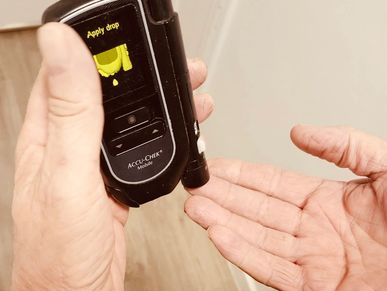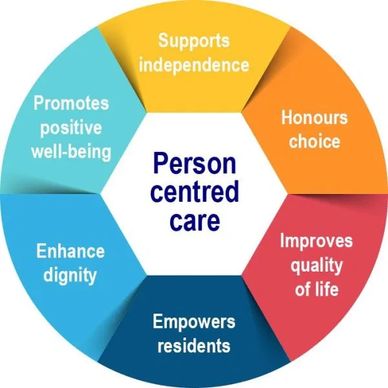Health and Social Care Support
Autism Awareness

You will cover:
- Why we refer to autism as a spectrum condition
- How it affects people differently
- What we mean by sensory processing differences
- Anxiety and autism
- Strategies for supporting autistic people
- Impact of autism on families
Learning outcome:
- Understand autism and the spectrum
- Confidently being able to support people with autism
- The affects of autism to an individual
- The affects of autism to families
Method of Study: Practical Practical
Student Certification: Accredited Level 1
Challenging Behaviour

You will cover:
- Recognising challenging behaviour
- Identify types of challenging behaviour
- Identify the causes of challenging behaviour
- Understanding the assault cycle
- To reflect on students experiences
- Increase confidence and understanding of challenging behaviour
- Understand what is meant by ‘reasonable force’
- To develop breakaway techniques
- Demonstrate effective release techniques from: Wrist grabs, hair pulls, throat and clothing grabs
Learning outcome:
- Identify challenging behaviours
- Understand the various causes of challenging behaviours
- Be confident when supporting people with challenging behaviour
- Practice safe release techniques
Method of Study: Practical Practical
Student Certification: Accredited Level 1 or 2
Diabetes Awareness

You will cover:
- What diabetes is and its prevalence in the UK
- The cause of diabetes, the symptoms and how it is diagnosed
- The main types of diabetes
- How diabetes is treated and how it can be prevented
- Complications that can be caused through diabetes
- The importance of supporting people with diabetes
- Implementing diabetes awareness measures in the workplace
Learning outcome:
- Understand what diabetes is and its prevalence in the UK
- Know the cause of diabetes, the symptoms and how it is diagnosed
- Know what the main types of diabetes are
- Understand how diabetes is treated and how it can be prevented
- Have an awareness of complications that can be caused through diabetes
- Understand the importance of supporting people with a diabetes
- Implement diabetes awareness measures in the workplace
- Train others in diabetes awareness within a variety of healthcare working environments
Method of Study: Practical
Student Certification: Accredited Level 1
Epilepsy Awareness
Learning Disability Awareness

You will cover:
- What epilepsy is and its prevalence in the UK
- The cause of epilepsy, the symptoms and how it is diagnosed
- What a seizure is and the main types
- How epilepsy is treated
- Common epilepsy drugs and their side effects
- The importance of staying safe for people with epilepsy
- Implementing epilepsy awareness measures in the workplace
Learning outcome:
- Understand what epilepsy is and its prevalence in the UK
- Know the cause of epilepsy, the symptoms and how it is diagnosed
- Know what a seizure is and the main types
- Understand how epilepsy is treated
- Have an awareness of the common epilepsy drugs and their side effects
- Understand the importance of people with an epilepsy condition staying safe
- Implement epilepsy awareness measures in the workplace
- Train others in Epilepsy Awareness within a variety of healthcare working environments
Method of Study: Practical
Student Certification: Accredited Level 2
Learning Disability Awareness
Learning Disability Awareness
Learning Disability Awareness

You will cover:
- Introduction to Learning Disabilities
- The Person Centred Approach
- Beth methods of communication
- What is meant by the term ‘Learning Disability’
- How does a learning disability commonly affect someone
Learning outcome:
- Understand the term ‘Learning Disability’
- The social care Vs Medical model of care
- Affects of living with a learning disability
- Affect communication methods
Method of Study: Practical
Student Certification: Accredited Level 1
Medication Awareness
Learning Disability Awareness
Learning Disability Awareness

You will cover:
- Delegates obligations and that of their employer in regards to the documentation and the administration of medication
- How medication should be stored Different types of medication and how they work
- Knowledge of the common adverse reactions
- The seven guidelines of administration of medication
- Controlled drugs and oxygen
- Drug errors
- Disposal of medication, etc.
Learning outcome:
- Understand the legislation that affects the administration of medicines
- Describe how medication should be stored and recorded
- Understand the different types of medication and how they work
- Follow protocols and policies when receiving, storing and recording medicines
- Describe common adverse reactions to medication
- Understand the differences in protocols between various healthcare provisions
- Train others in medication controls within their healthcare working environment
Method of Study: Practical
Student Certification: Accredited Level 2
Person Centred Care (Includes Privacy and Dignity)

You will cover:
- Delegate’s awareness of the importance of person centred care
- Understanding of the importance of good communication
- Knowledge on how to improve care delivered to ensure person centred care in a healthcare environment, etc
Learning outcome:
- Understand the legislation and standards governing person centred care
- Understand the meaning and importance of person centred care
- Explain the importance of good communication
- Describe how to promote choice and Independence
- Explain how to improve care delivered to ensure person centred care
- Train others in person centred care requirements within their healthcare working environment
Method of Study: Practical
Student Certification: Accredited Level 1
Safeguarding Adults at Risk

You will cover:
- Understanding what is meant by the term ‘vulnerable adult’
- Knowing the forms abuse may take
- Recognising signs and symptoms
- Knowing what to do and what not to do
- The legislation and guidance concerning safeguarding adults at risk
Learning outcome:
- Explain what is meant by the term ‘vulnerable adult‘
- List forms abuse may take
- Recognise signs and symptoms of abuse
- Understand how to respond appropriately to disclosures of abuse
- Understand roles & responsibilities towards vulnerable adults
- Understand the legislation and guidance concerning safeguarding adults at risk
- Train others in safeguarding adults at risk controls within their healthcare working environment
Method of Study: Practical Practical
Student Certification: Accredited Level 1
Safeguarding Children at Risk
Safeguarding Children at Risk

You will cover:
- Child maltreatment in its different forms (physical including Fabricated and induced illness, emotional and sexual abuse, and neglect) including child trafficking, FGM and radicalisation including prevalence and impact
- The relevance of parental, family and carer factors such as domestic abuse, mental and physical ill-health, substance and alcohol misuse
- What to do if there are concerns about child maltreatment, including local policies and procedures around who to contact, where to obtain further advice and support, and have awareness of the referral process
- The importance of sharing information (including the consequences of failing to do so)
- What to do if concerns are not being taken seriously or any other barriers to referring a child/family
- Risks associated with the internet and online social networking
- What the term ‘Looked after child’ means
- Ability to recognise possible signs of child maltreatment relating to the healthcare workers role
- Ability to seek appropriate advice and report concerns, and feel confident that concerns have been listened to
Learning outcome:
- Explain how to identify child maltreatment in its different forms and possible signs
- Explain what to do if there are concerns about child maltreatment and the importance of sharing information
- Describe where to seek appropriate advice and report concerns
- Train others in safeguarding children requirements within their working environment
Method of Study: Practical Practical
Student Certification: Accredited Level 1

Sign Up to our Newsletter
Click below to sign up to our newsletter and keep upto date with upcoming courses and offers!
